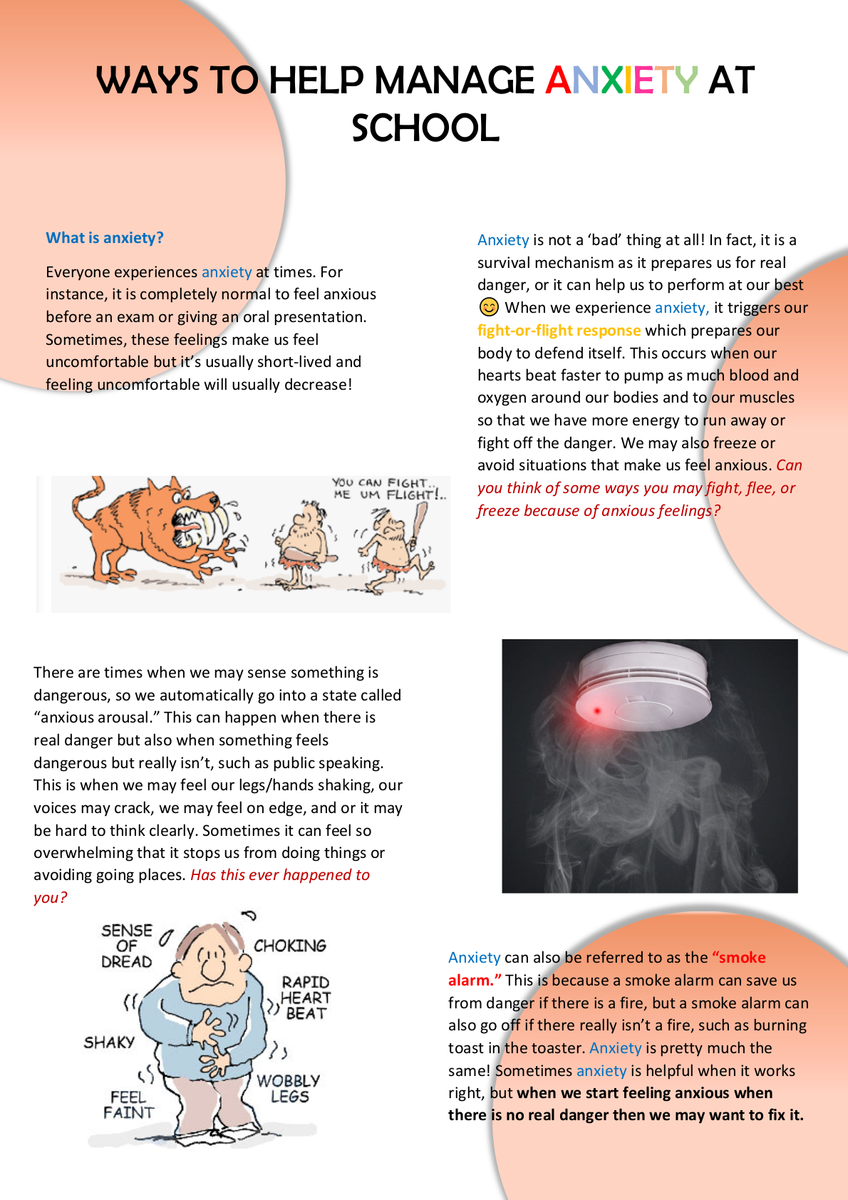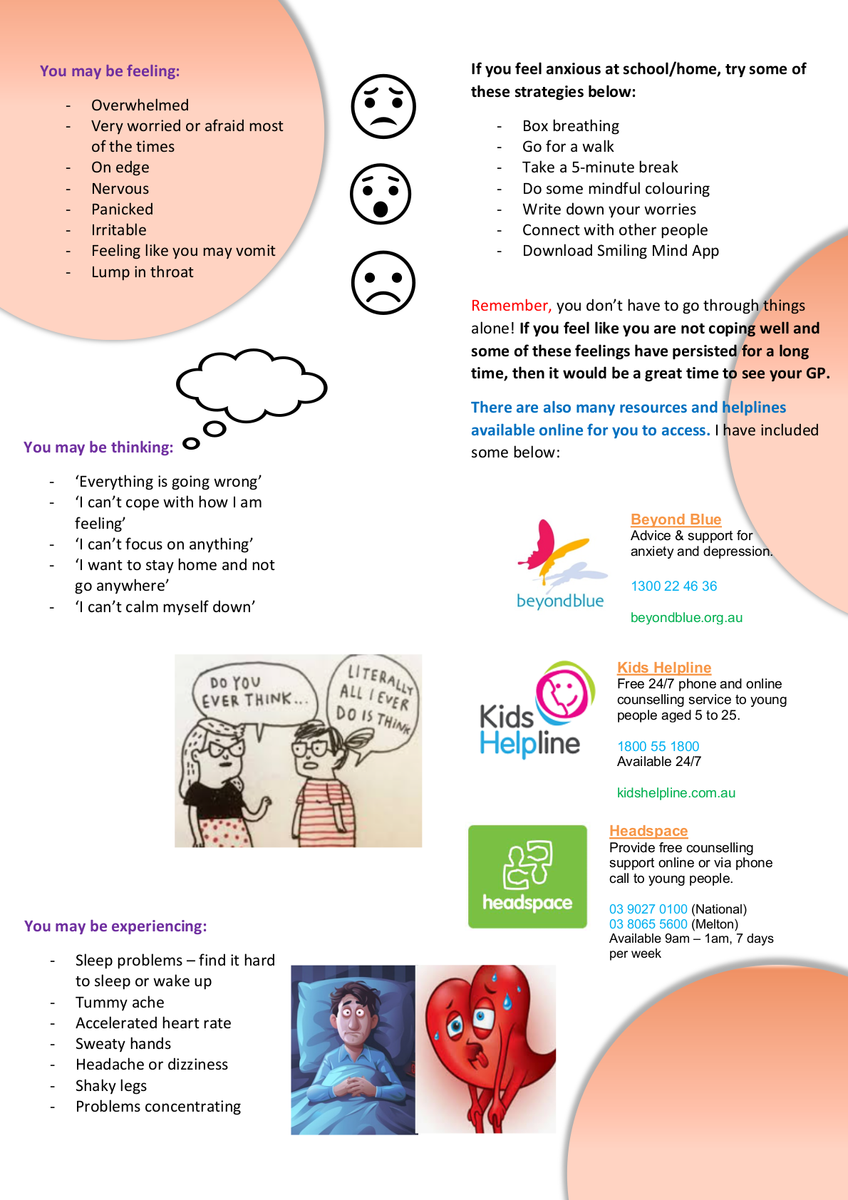Tips for Helping Your Anxious Teenager
Anxiety disorders are one of the most common types of mental health concerns in children and young people, with around 7% of Australian children experiencing some type of anxiety disorder. There are also different types of anxiety. It can be generalised or specific, related to social interactions, or an event. It can cause panic.
How to support your child through anxiety
There are many things you can do as a parent to support your kids with anxiety. Here are some strategies to try:
- Find out more about anxiety – read books and talk to experts or a parent who seems to be managing it well in their own child. Call and speak with someone in Wellbeing, or at Parentline. https://parentline.com.au/issues/anxiety-kids
There are lots of good resources at the following websites as well: - https://www.beyondblue.org.au/the-facts/anxiety https://kidshelpline.com.au/parents/issues/anxiety-kids-and-teens
- Try to avoid telling your child to ‘stop worrying’ – often they can’t control it yet
- Teach them about anxiety – it’s role is to protect us from threats
- Talk about their anxiety – sketch where on their body they feel it so they can learn to recognise where the signs of anxiety start, as it is easier to recover from it if they can start early on.
- Reassure them that shaking, sweating and a racing heart can be part of anxiety
- Slow things down – encourage your child to take some slow, deep breaths and do something that helps them calm down. Sometimes it is music, humour, colouring in, writing down their worries in a “worry box” or on a “worry wall” or in a journal that they can go back to later, and use to help them talk about it.
- Make a list of coping strategies to try and try them together. An example of strategies are things like walking or grooming a pet, exercise, saying positive things to themself, colouring, shooting hoops, riding a bike, watching a funny video clip, using a sensory or fidget toy, investigate www.smilingmind.com.au as it has some great short and effective mindfulness sessions for different ages and stages. Well worth a visit!
- Encourage a healthy lifestyle – eat well, exercise, sleep
- Be patient and positive as your child practices new ways to cope
- Seek professional support for you and your child when needed. Involve Wellbeing staff at school who can be supportive.
- Let them know you can work together to overcome anxiety
- Acknowledge their fears and help them to see that things might not be as bad as they think
- Help them manage their anxiety – set daily goals and develop coping skills
- Josie Mitchell
Youth Health Nurse
Whats to Manage Anxiety at School








